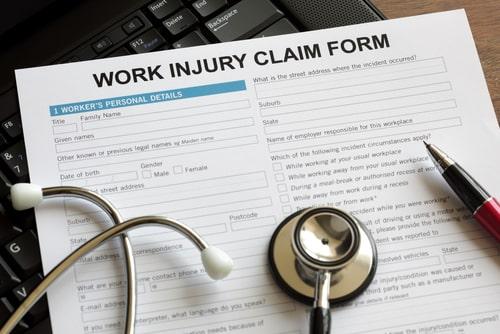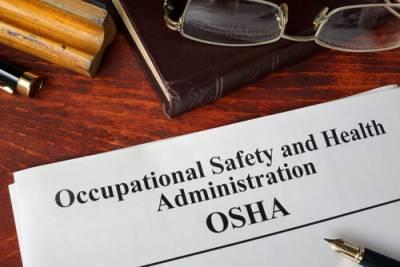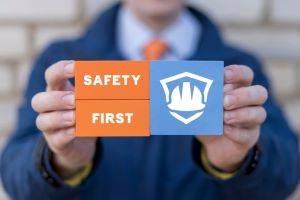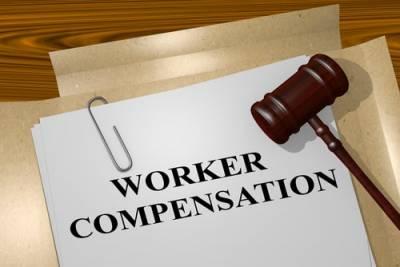Recent Blog Posts
What are Supplemental Job Displacement Benefits?
 If you suffered a serious and long-term injury while working, you may feel that you are in a very difficult position. Your injury may prevent you from returning to the job you had before the accident, but not prevent you from working at all. There are challenges that come with this situation. Especially if you went through training to enter your particular occupation, the skills you used at work may be the only occupational skills you know. You may struggle to find a job you can do that pays as well as your last job. For example, if you were a construction worker and lost the use of your legs in an accident, you likely cannot continue to perform any sort of manual labor. This may mean that you need a desk job or another occupation that does not require much physical activity. However, you may not have the education or training needed to step into another career. Supplemental job displacement benefits received through Workers’ Compensation can help you obtain the training you need.
If you suffered a serious and long-term injury while working, you may feel that you are in a very difficult position. Your injury may prevent you from returning to the job you had before the accident, but not prevent you from working at all. There are challenges that come with this situation. Especially if you went through training to enter your particular occupation, the skills you used at work may be the only occupational skills you know. You may struggle to find a job you can do that pays as well as your last job. For example, if you were a construction worker and lost the use of your legs in an accident, you likely cannot continue to perform any sort of manual labor. This may mean that you need a desk job or another occupation that does not require much physical activity. However, you may not have the education or training needed to step into another career. Supplemental job displacement benefits received through Workers’ Compensation can help you obtain the training you need.
What Medical Care Does California Workers' Compensation Cover?
 One of the biggest expenses associated with a workplace injury is medical care. It does not help that the cost of healthcare is grossly inflated due to the inner workings of the health insurance market. You may find that a single visit with a specialist, like an orthopedist or physical therapist, can be billed at several hundred dollars or more. If you needed emergency care in the hospital, your ambulance and hospital bills may even be in the tens of thousands. Most people who are injured at work will also need extensive follow-up care even once they are in stable condition and able to go home from the hospital. Others may need home health services or transportation to and from appointments. The good news is that if you were injured while performing work for your employer, it is likely that Workers’ Compensation should be paying these expenses for you. An attorney can help you make sure that you are receiving the benefits you are entitled to.
One of the biggest expenses associated with a workplace injury is medical care. It does not help that the cost of healthcare is grossly inflated due to the inner workings of the health insurance market. You may find that a single visit with a specialist, like an orthopedist or physical therapist, can be billed at several hundred dollars or more. If you needed emergency care in the hospital, your ambulance and hospital bills may even be in the tens of thousands. Most people who are injured at work will also need extensive follow-up care even once they are in stable condition and able to go home from the hospital. Others may need home health services or transportation to and from appointments. The good news is that if you were injured while performing work for your employer, it is likely that Workers’ Compensation should be paying these expenses for you. An attorney can help you make sure that you are receiving the benefits you are entitled to.
What Is OSHA and Why Does It Matter?
 Everyone who works for a living is at risk of sustaining employment-related harm. The risks associated with employment in the U.S. vary based on the industry in which someone works and the tasks they perform as a function of their job. Office workers may struggle increasingly over time as repetitive motion trauma develops and evolves. Construction workers may fall from heights and utility workers may suffer electrocution. The government agency tasked most directly with helping all workers to avoid these and other kinds of employment-related harm is the Occupational Safety and Health Administration (OSHA).
Everyone who works for a living is at risk of sustaining employment-related harm. The risks associated with employment in the U.S. vary based on the industry in which someone works and the tasks they perform as a function of their job. Office workers may struggle increasingly over time as repetitive motion trauma develops and evolves. Construction workers may fall from heights and utility workers may suffer electrocution. The government agency tasked most directly with helping all workers to avoid these and other kinds of employment-related harm is the Occupational Safety and Health Administration (OSHA).
OSHA’s Mission
The agency describes its purpose as ensuring "safe and healthful working conditions for workers by setting and enforcing standards and by providing training, outreach, education and assistance." When OSHA’s efforts are successful, fewer injuries and illnesses occur under employment-related circumstances.
Federal Spotlight Placed on Warehouse Worker Safety
 While any worker, regardless of their occupation or the location of their employment, can sustain harm while on the job, it is undeniable that some working conditions are more hazardous than others. Traditional high-risk occupations include construction work, commercial fishing, policing, logging, mining, and work within various transportation industries.
While any worker, regardless of their occupation or the location of their employment, can sustain harm while on the job, it is undeniable that some working conditions are more hazardous than others. Traditional high-risk occupations include construction work, commercial fishing, policing, logging, mining, and work within various transportation industries.
As the nature of the American economy changes, some occupations are becoming increasingly classified as high-risk by industry insiders and regulators alike. For example, as more shopping and supply sourcing occurs online, warehouses and delivery fleets are supplementing – and, in some cases, outright supplanting – brick and mortar retail. The trucking industry and road safety matters are highly regulated. However, regulators are increasingly paying necessary attention to the challenging circumstances under which warehouse workers across the U.S. are operating.
Employees Can Receive Workers’ Compensation for Heat-Related Harm
 When you think of the word “injury,” what comes to mind? Most people tend to think of broken bones, internal bleeding, bruising, and trauma. Yet, the concept of injury – at least, as it pertains to workers’ compensation coverage and benefits – extends beyond physical conditions. Work-related injuries that may qualify a worker for benefits can range from repetitive trauma to the aggravation of pre-existing conditions. Even heat-related conditions that manifest symptoms commonly associated with illness are covered as injuries per workers’ compensation law.
When you think of the word “injury,” what comes to mind? Most people tend to think of broken bones, internal bleeding, bruising, and trauma. Yet, the concept of injury – at least, as it pertains to workers’ compensation coverage and benefits – extends beyond physical conditions. Work-related injuries that may qualify a worker for benefits can range from repetitive trauma to the aggravation of pre-existing conditions. Even heat-related conditions that manifest symptoms commonly associated with illness are covered as injuries per workers’ compensation law.
When It is Too Hot, Workers Get Hurt
In mid-July, Cal/OSHA issued a press release reminding employers to safeguard their workers from heat-related illness and injury as heat waves grip the state. Cal/OSHA Chief Jeff Killip made it clear that his team is focusing significant efforts on protecting workers and holding employers accountable for failing to take proper heat-related precautions in occupations as varied as warehouse work, construction, and landscaping.
Workers’ Compensation for Autoimmune Challenges
 All too often, the workers’ compensation system is portrayed as a way to secure benefits after suffering an injurious accident on the job. While it is possible to successfully pursue benefits under these circumstances, the workers’ compensation system in California serves workers in more than just this narrow way. Generally speaking, any time an eligible worker sustains physical harm while engaged in employment-related activities, they qualify for benefits. Thai means that if you have an autoimmune condition that has developed, or been aggravated, accelerated, or reactivated by work-related activity, you may be eligible for benefits at this time.
All too often, the workers’ compensation system is portrayed as a way to secure benefits after suffering an injurious accident on the job. While it is possible to successfully pursue benefits under these circumstances, the workers’ compensation system in California serves workers in more than just this narrow way. Generally speaking, any time an eligible worker sustains physical harm while engaged in employment-related activities, they qualify for benefits. Thai means that if you have an autoimmune condition that has developed, or been aggravated, accelerated, or reactivated by work-related activity, you may be eligible for benefits at this time.
The Challenging News
The workers’ compensation system is not fault-based. The primary concern of workers’ compensation claims adjusters is whether someone’s harm was caused by their employment. Unfortunately, because autoimmune conditions can develop or be exacerbated for many reasons, it can be challenging to prove that someone’s autoimmune-related harm was caused specifically by their employment. As a result, a strong claim supported by medical evidence is required before benefits related to autoimmune challenges will be approved.
How Age, Job Classification, and Documentation Affect Workers’ Compensation Eligibility
 California has some of the strongest workers’ rights laws in the country. Therefore, it should not necessarily be surprising that the state broadly protects the rights of most employees – whether part-time or full-time – to pursue workers’ compensation benefits in the event that they are hurt or become ill while engaged in work-related activities. Yet, due to a variety of factors, including employers that would rather not make these protections widely known or understood, many workers are unaware of this particular legal protection. Some are even led to believe that they are ineligible for benefits due to their age, immigration status, or another fundamental aspect of their identity as a worker.
California has some of the strongest workers’ rights laws in the country. Therefore, it should not necessarily be surprising that the state broadly protects the rights of most employees – whether part-time or full-time – to pursue workers’ compensation benefits in the event that they are hurt or become ill while engaged in work-related activities. Yet, due to a variety of factors, including employers that would rather not make these protections widely known or understood, many workers are unaware of this particular legal protection. Some are even led to believe that they are ineligible for benefits due to their age, immigration status, or another fundamental aspect of their identity as a worker.
Eligibility for California Workers’ Compensation Benefits
Because California seeks to protect as many workers as possible, there are no workers’ comp coverage exemptions for small businesses, as there are in many other states. In California, unless a business is part of a handful of specialty industries – including many maritime and railroad operations – it is required to carry workers’ compensation coverage, even if the business only employs one individual. Each employee, regardless of their age, status as a temporary, seasonal, part-time, or full-time worker, and regardless of whether they are documented or undocumented, is eligible for workers’ compensation benefits.
How an Unsafe Work Environment May Affect Workers’ Compensation
 If you work under unreasonably unsafe conditions, you are far more likely to be injured on the job than you would be in other situations. This is an issue that can affect both people who work in high-risk occupations and those in traditionally safer jobs. Although there are legal and financial protections that you can take advantage of if you sustain work-related harm, these will not address the underlying safety issues that affect you and others. By not speaking up about working conditions that could be unsafe, you and your co-workers will remain in a position where you are likely to be harmed in potentially life-altering ways.
If you work under unreasonably unsafe conditions, you are far more likely to be injured on the job than you would be in other situations. This is an issue that can affect both people who work in high-risk occupations and those in traditionally safer jobs. Although there are legal and financial protections that you can take advantage of if you sustain work-related harm, these will not address the underlying safety issues that affect you and others. By not speaking up about working conditions that could be unsafe, you and your co-workers will remain in a position where you are likely to be harmed in potentially life-altering ways.
Workers’ Comp Benefits Are Helpful, but Limited
If you are an employee who works directly for an employer, you are likely entitled to workers’ compensation benefits in the event that you sustain harm while engaging in work-related activities. In California, most employees have the right to file a claim for benefits under these circumstances, as long as they are not rightfully classified as independent contractors or are employed in select specialty industries.
What Happens When Job Duties Aggravate a Pre-Existing Condition?
 All too often, workers who have grounds upon which to file a legitimate workers’ compensation claim refrain from doing so. Sometimes, workers fear retaliation or harassment. Others are simply convinced that they will not be able to sufficiently prove their claim. This latter concern is often a factor for workers who already struggle with physical challenges and whose job duties aggravate or exacerbate those challenges. By failing to file a claim and continuing to strain their bodies in order to make a living, these workers may keep pushing on the job to the point where they can no longer work at all.
All too often, workers who have grounds upon which to file a legitimate workers’ compensation claim refrain from doing so. Sometimes, workers fear retaliation or harassment. Others are simply convinced that they will not be able to sufficiently prove their claim. This latter concern is often a factor for workers who already struggle with physical challenges and whose job duties aggravate or exacerbate those challenges. By failing to file a claim and continuing to strain their bodies in order to make a living, these workers may keep pushing on the job to the point where they can no longer work at all.
Pre-Existing Conditions Do Not Disqualify a Worker from Workers’ Compensation Eligibility
There is little question that it is easier to demonstrate that work-related injuries were caused by an onsite accident witnessed by co-workers than it is to prove that harm has been caused by the work-related aggravation of a pre-existing condition. However, simply because proving this kind of case can be challenging does not mean that it cannot be done successfully.
Workers’ Compensation Benefits for Harm Sustained Remotely
 One of the most commonly misunderstood realities of workers’ compensation coverage is how far it extends. Most people, understandably, think of workers’ compensation benefits as compensation awarded to employees who sustain harm as a result of accidents in the workplace. Although such injury-related scenarios tend to be the easiest claims to prove, California workers’ compensation coverage extends to a host of other circumstances.
One of the most commonly misunderstood realities of workers’ compensation coverage is how far it extends. Most people, understandably, think of workers’ compensation benefits as compensation awarded to employees who sustain harm as a result of accidents in the workplace. Although such injury-related scenarios tend to be the easiest claims to prove, California workers’ compensation coverage extends to a host of other circumstances.
When Harm Occurs Off-Site
Workers’ compensation claims that are filed after someone is injured at their employer’s place of business tend to be easily proven due to the likely presence of witnesses and company surveillance footage. Yet, simply because claims for injuries sustained remotely are traditionally more difficult to prove does not mean that such harm does not render an injured worker eligible for benefits.








